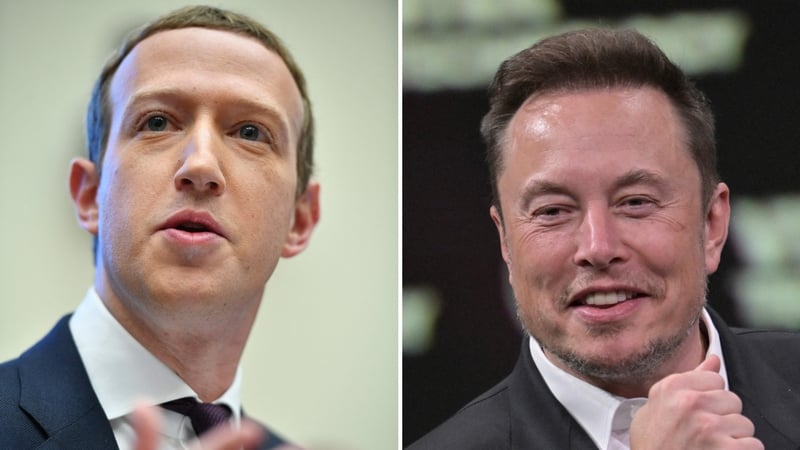Analysis: As a new book shows, growth and success has turned optimistic tech startups into corporate cesspits of greed, manipulation and contempt
In the early days of Google, the phrase ‘don’t be evil’ was both its motto and part of its Code of Corporate Conduct. By 2018, that phrase was history and so was the sentiment that that inspired it in many peoples’ eyes.
For many tech giants, growth and success has seemed to morph what were once benevolent and optimistic startups into cesspits of greed, manipulation and contempt. Descriptions of the inner workings of companies like Google, Facebook (now Meta), and Twitter (now X) portray dystopian hellscapes in which employees are treated like disposable cogs in an ever-grinding machine and competitors are squeezed out of the market by means fair and foul. It is a world where corporate leaders tell us that the biggest failing of civilization is that we have empathy for one another.

In Careless People, a new exposé of corporate life at Facebook/Meta, Sarah Wynn-Williams describes her seven years in the executive suite of that company. As a former diplomat from New Zealand, she joined Facebook believing that the internet could make the world a better place by fostering connections between people and communities.
But the corporate world she describes is one in which the internet was consciously used to spread hate, fear and division. It’s a book where the behaviour of top executives involving ongoing patterns of sexual harassment, exploitation and fawning worship of power-mad leaders reads like something from The Decline and Fall of the Roman Empire.
There are growing reports of mistreatment and employee discontent at companies like Google and Twitter/X. While Google continues to rake in growing profits, employees complain that these gains are no longer shared with employees. Employees of Twitter/X have described an increasingly toxic culture in which beds have been moved into the office so employees could work longer hours.
We need your consent to load this YouTube contentWe use YouTube to manage extra content that can set cookies on your device and collect data about your activity. Please review their details and accept them to load the content.Manage Preferences
From NBC Today Show, inteview with Sarah Wynn-Williams about her Careless People book about her seven years working for Facebook
Employees of SpaceX, another Musk venture, have complained of a culture in which sexual harassment is widely practiced and tolerated. Meanwhile, Amazon has repeatedly been fined for forcing employees in its warehouses to work at a pace that threatens their health and safety.
In a recent Irish Times column, Liz Carolan suggests that it is the system, not the people, that causes giant tech companies to pursue such destructive paths. The common theme linking many of these companies that have embraced such toxic cultures is the relentless pursuit of growth. That is, many tech giants seem to show less concern for delivering useful products than they do for increasing their dominance of the markets in which they operate.
The relentless pursuit of growth not only affects organizations, but can also disrupt and distort the lives of individuals. If your view of your own worth is driven by your next raise or promotion, it will be difficult to ever feel like you have finally reached the state you are striving toward.
We need your consent to load this rte-player contentWe use rte-player to manage extra content that can set cookies on your device and collect data about your activity. Please review their details and accept them to load the content.Manage Preferences
From RTÉ Radio 1’s The Business, is the pursuit of growth worth its cost?
The pursuit of growth can be an eminently sensible strategy for a startup, but it is not a sustainable strategy for corporations that have completed their initial growth spurt. Companies that make growth their focus are very good at extracting value from their markets and their employees, but not very good at anything else. As their growth curves flatten, as they inevitably will, they often start to see employees as costs and liabilities rather than as contributors, with a growing likelihood of layoffs and an increasing likelihood that employees will be disrespected and mistreated.
While I agree with many of the points Carolan raises, I believe her analysis misses a major factor in the development of toxic cultures in so many tech giants, namely the lionisation of CEOs and top executives. Leaders like Elon Musk, Mark Zuckerberg and Jeff Bezos have accumulated immense wealth and power, and they are sometimes treated like demi-gods in the business press.
We know from history that granting great power, great wealth and a fawning set of courtiers rarely works out well. In the 18th century, Lord Acton observed that “power tends to corrupt and absolute power corrupts absolutely”.
We need your consent to load this rte-player contentWe use rte-player to manage extra content that can set cookies on your device and collect data about your activity. Please review their details and accept them to load the content.Manage Preferences
From RTÉ Radio 1’s Oliver Callan, interview with journalist Carole Cadwalladr about her reports into big tech data scandals
It has been claimed that Musk, Zuckerberg, and Bezos control more combined wealth than the bottom 50% of Americans. Such stratospheric wealth and the power this wealth brings (Musk’s outsized political donations are cited as a key factor in Donald Trump’s re-election) meas they are so far out of touch with everyday workers that they seem no longer willing or able to treat their employees as partners whose hard work created the fortunes they have accumulated.
There is an old saying that a fish rots from the head down, and the same can be said of many corporations. It should not surprise us that corporate leaders who are treated as if the normal rules do not apply to them will end up behaving badly. There are frequent calls for term limits for politicians, but perhaps the same idea should be applied to CEOs.
American politician Bernie Sanders has argued that billionaires should not exist. There are reasonable arguments about whether billionaires contribute to or harm societies, but suppose corporations took the position that it is time for him or her (almost always him to be honest) to retire once their CEO accumulates a billion dollars. We might say the same about corporations. Perhaps once a corporation reached a certain point in their growth cycle (e.g., near-monopolist domination of their market), we should think about breaking that corporation up, not about how to make it grow larger and more powerful.
As long as some tech giants pursue a strategy of wanting more without worrying about how they get there, we can expect more books cataloguing the seamier side of corporate life
If you read the biographies of the great captains of industry of the 19th and 20th century such as Andrew Carnegie, John D Rockefeller or Henry Ford, you’ll find stories of hard-working men who started off with good ideas and made good products. But as they became more successful, they became increasingly ruthless in their treatment of workers and competitors. The same lesson seems to apply to our current generation of corporate giants.
In the movie Key Largo, Humphrey Bogart tells us he knows what Edward G. Robinson’s character, the racketeer Johnny Rocco, wants – he wants more. As long as some tech giants pursue the same strategy of wanting more without worrying too much about how they get there, we can expect a steady stream of new books cataloguing the seamier side of corporate life to rival Wynn-Williams’ Careless People.
Follow RTÉ Brainstorm on WhatsApp and Instagram for more stories and updates
The views expressed here are those of the author and do not represent or reflect the views of RTÉ




